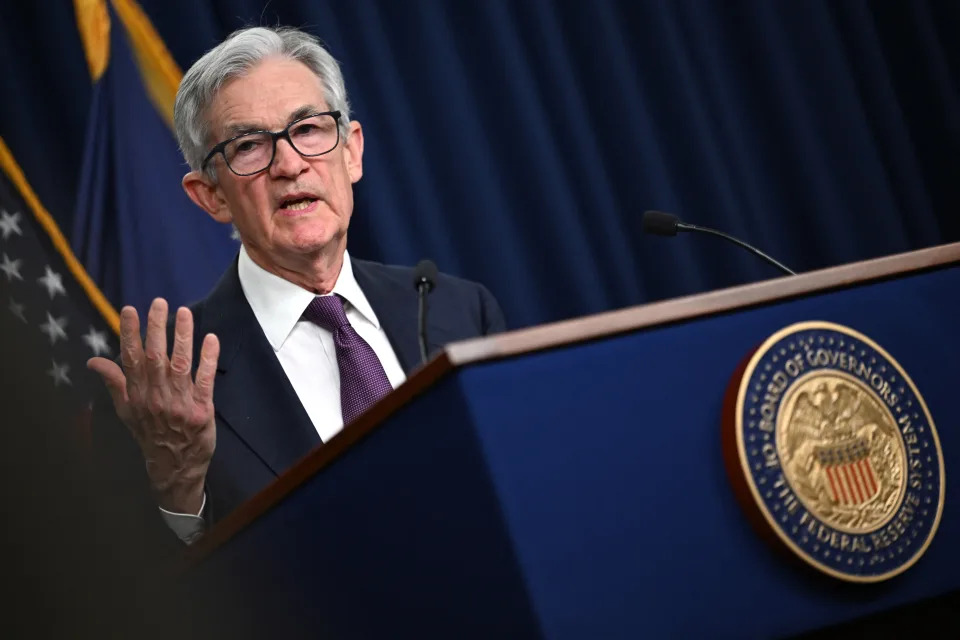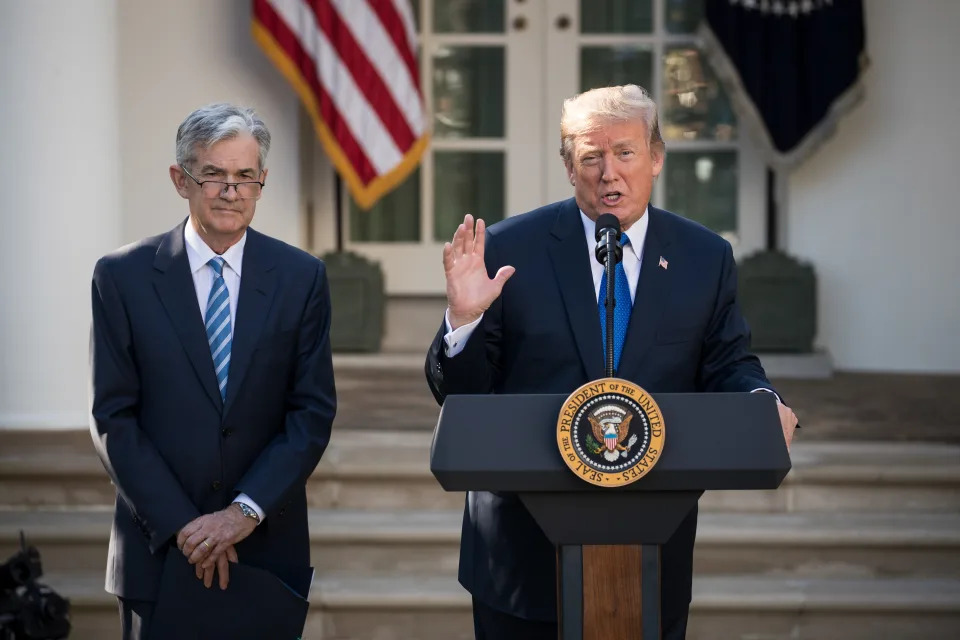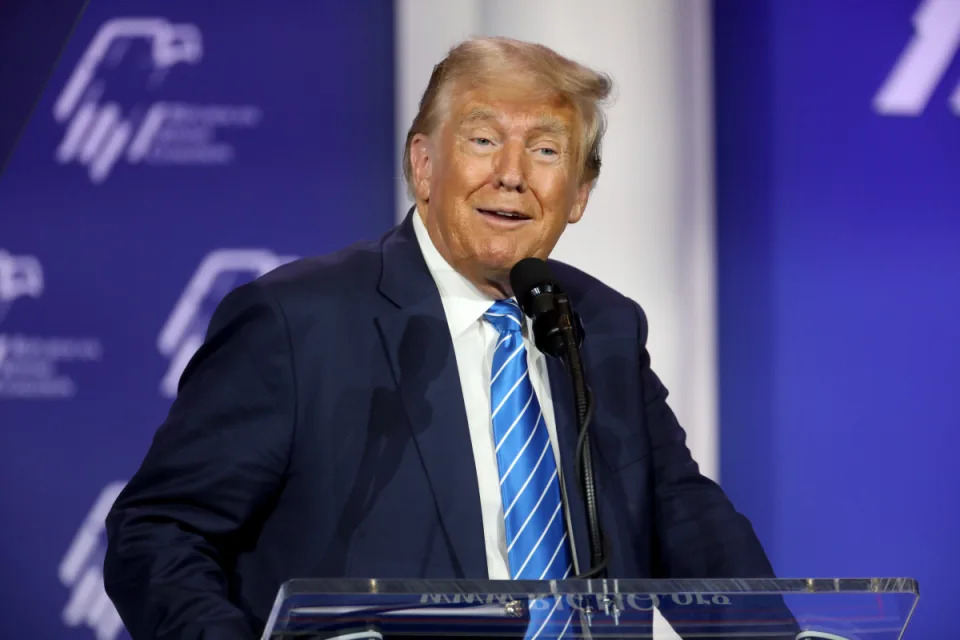Federal Reserve Chair Jerome Powell offered what was perhaps a tell Wednesday on how top of mind the economic policies of President-elect Donald Trump are for monetary policy in 2025.
The moment came about 15 minutes into his press conference with reporters when he was asked about September 2018 "Tealbook" simulations from the central bank on tariffs.
“I happen to have brought them with me here today,” Powell offered of the long-ago study, which discussed the impact of tariffs during Trump 1.0 on prices and whether it was possible to "look through" their effects.
"They’re a good starting point," Powell added of the six-year-old analysis, calling the questions the right ones to ask.

The moment was emblematic of Powell's current approach of preparing for Trump's policies but not changing course just yet.
For now, Powell and his colleagues Wednesday decided in a split vote to reduce the central bank's benchmark interest rate by 25 basis points to a new range of 4.25%-4.5%, initiating its third consecutive rate cut of 2024 despite signs that inflation isn’t entirely going away.
Read more: What the Fed rate cut means for bank accounts, CDs, loans, and credit cards
A focus on tariffs
Tariffs are of course a central question about what Trump 2.0 may entail for the economy, with the president-elect pledging a potential wave of new trade wars on China and other trading partners both during the campaign and in the weeks since his victory.
A range of economists have offered predictions that new tariffs — as well as immigration moves — could be inflationary and pose new challenges for the central bank.
Powell repeatedly underlined Wednesday that there are more questions than answers at this point on what policies Trump will actually put into place as he acknowledged the uncertainty surrounding what effects such policies may have on the Fed’s rate path.
"We expect significant policy changes," Powell said. "We need to see what they are and what effects they have. We will have a much clearer picture" once that happens.
The Fed, he added, is "thinking about these questions" but won’t have definitive answers for some time yet.

This mix of planning but not yet necessarily reacting is one that many experts, including at least one former regional Fed president, expected.
For now, Powell is clearly studying up on what effects different tariffs and other scenarios could have. "I think that’s the right tack,” said former Cleveland Fed boss Loretta Mester in a live Yahoo Finance interview on Wednesday just before the decision.
"We may know a lot more once the inaugural happens," she added.
For now, Powell is clearly studying up on what effects different tariff and other scenarios could have.
He said he and his colleagues have been doing “a good bit of work” on how tariffs might impact inflation.
"It puts us in position, when we finally do see what the actual policies are, to make a more careful, thoughtful assessment of what might be the appropriate policy path."
"You don’t rule anything in or out in this world," he added about the path for the economy in 2025.
Ben Werschkul is Washington correspondent for Yahoo Finance.
Every Friday, Yahoo Finance's Rachelle Akuffo , Rick Newman , and Ben Werschkul bring you a unique look at how US policy and government affects your bottom line on Capitol Gains. Watch or listen to Capitol Gains on Apple Podcasts , Spotify , or wherever you find your favorite podcasts.





